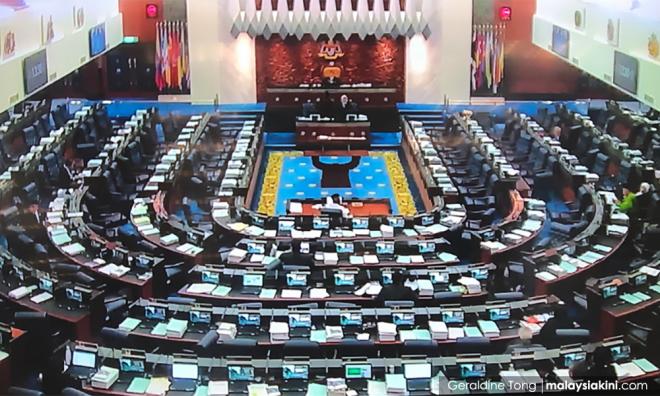
ADUN SPEAKS | The position in the UK seems to be that if a sitting prime minister loses the motion of confidence he has to seek dissolution of Parliament from the Queen. This equation does not seem to be the case in Malaysia.
The most recent illustration for that British convention was the defeat of a motion on the Maastricht Treaty tabled by then prime minister John Major in 1992. For the record, the successor of MargaretThatcher was opposed by some of his own MPs on the issue.
Realising that his position was precarious, Major tabled a motion of confidence in the House of Commons immediately. Somehow the backbenchers, including the rebels who contributed to the government loss on the Maastricht issue, came back and supported him.
At the time, the Tony Blair-led Labour were riding high and obviously the Conservative MPs knew defeat of the confidence motion would virtually mean losing the government. In hindsight, they were right as Tony Blair with his New Labour won a landslide in the 1997 general elections.
Even though Malaysia is a Westminster system and our constitution has codified some of the British political conventions, there is no clear link between the two, motion defeat and dissolution.
In fact, careful reading of Article 43(4) of the Federal Constitution seems to suggest that dissolution is for the Yang di-Pertuan Agong to decide; the outgoing premier can only request. This is, of course, in line with the provision in Article 40(2)(b) where His Majesty is empowered to decline a request to dissolve Parliament.
It must be emphasised however that unlike in the case of the appointment of a prime minister stated in Article 40(2)(a) and spelt out in subsequent provision in Article 43(2)(a), the notion of “discretion” on dissolution is somewhat different. One might say it is more absolute given the nature and implications of the matter.
In fact, the Reid Commission in their report suggested that the Yang Di-Pertuan Agong should be given the mandate to evaluate the prevailing situation. This includes the experience throughout the Commonwealth for the past 100 years.
Be that as it may, the Yang Di-Pertuan Agong has to bear in mind that he must have a government to advise him at all times. Though, of course, such does not necessarily mean by or through a general election. Such a government could be appointed from the existing Parliament.
Perhaps it could be added that even the MPs do not always favour fresh elections. In fact, when they decide on which side to support during the confidence motion, they already have in mind what kind of premier and government they would like to have.
Having said that, however, it does not mean that dissolution is entirely out of question. For one thing, governing is a matter which the rakyat is the major stakeholder and this means it is for them to decide.
ABDUL AZIZ BARI is state assemblyperson for Tebing Tinggi, Ipoh, Perak. He is a law professor and former state exco member. - Mkini



No comments:
Post a Comment
Note: Only a member of this blog may post a comment.